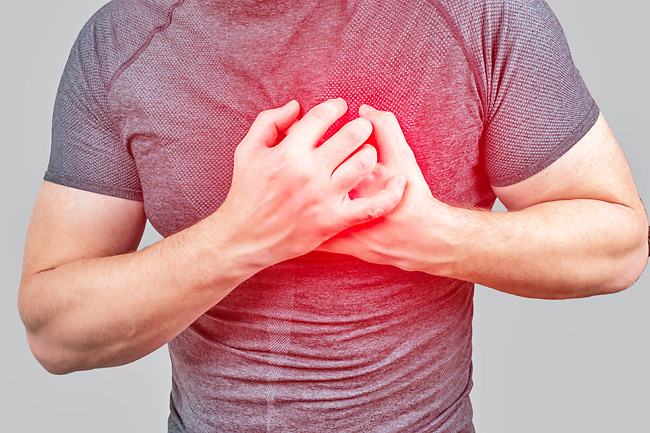
The Link Between Erectile Dysfunction and Cardiovascular Health
Introduction
At Arrowmeds , we understand the importance of addressing health concerns comprehensively. In this article, we delve into the significant connection between erectile dysfunction (ED) and cardiovascular health. While acknowledging that various factors contribute to search rankings, we strive to provide you with superior content that offers valuable insights and information on this topic. Let’s explore the intricate relationship between ED and cardiovascular health, emphasizing the importance of a holistic approach to well-being. Lovegra 100 mg is a medication made exclusively for women to improve sexual enjoyment and address sexual dysfunction.Understanding Erectile Dysfunction (ED)
Erectile dysfunction, commonly referred to as ED, is a condition characterized by the inability to achieve or maintain an erection sufficient for sexual intercourse. It affects a substantial number of men worldwide, and its prevalence tends to increase with age. While ED can be caused by psychological factors such as stress or anxiety, it can also stem from underlying physical health conditions, including cardiovascular disease.The Impact of Cardiovascular Health on Erectile Function
- Blood Flow and Penile Health: A robust cardiovascular system is vital for ensuring proper blood flow throughout the body, including the penis. The arteries in the penis are narrower than those in other parts of the body, making them more susceptible to damage caused by cardiovascular issues. Reduced blood flow, often due to narrowed or blocked arteries, can impair erectile function.
- Endothelial Dysfunction: Endothelial cells line the blood vessels, playing a crucial role in regulating blood flow. Cardiovascular conditions such as atherosclerosis can lead to endothelial dysfunction, compromising the ability of blood vessels to dilate and deliver adequate blood to the penis. As a result, erectile function may be affected.
- Shared Risk Factors: Erectile dysfunction and cardiovascular disease share several common risk factors, emphasizing their interconnected nature. These risk factors include obesity, diabetes, hypertension (high blood pressure), high cholesterol levels, smoking, and a sedentary lifestyle. Addressing these risk factors can positively impact both cardiovascular health and erectile function.
The Role of Nitric Oxide in Erectile Function
Nitric oxide (NO) is a crucial molecule involved in maintaining healthy erectile function. It acts as a vasodilator, relaxing and widening the blood vessels in the penis, thereby facilitating the engorgement necessary for an erection. Cardiovascular health significantly influences the production and availability of nitric oxide in the body. Impaired cardiovascular function can disrupt the production of NO, leading to erectile difficulties.Taking a Holistic Approach to Cardiovascular and Erectile Health
To improve both cardiovascular health and erectile function, a comprehensive approach is recommended. Here are some strategies that can contribute to overall well-being:1. Lifestyle Modifications
- Regular Physical Activity: Engaging in moderate-intensity exercise such as brisk walking, jogging, or cycling promotes cardiovascular fitness and blood flow, benefiting erectile function.
- Healthy Diet: Adopting a balanced diet rich in fruits, vegetables, whole grains, lean proteins, and healthy fats helps manage weight, reduce cholesterol levels, and support cardiovascular health.
- Tobacco Cessation: Quitting smoking is paramount, as it contributes to endothelial dysfunction and vascular damage. Seek support from healthcare professionals or cessation programs to increase your chances of success.
2. Managing Underlying Health Conditions
- Diabetes Control: Maintaining stable blood sugar levels through medication, dietary adjustments, and regular monitoring can prevent or manage complications that affect cardiovascular and erectile health.
- Blood Pressure Management: Regular monitoring, adherence to prescribed medications, and lifestyle modifications (such as reducing sodium intake) can help manage hypertension and minimize its impact on erectile function.
Recognizing the Warning Signs
It is crucial to be aware of the warning signs that may indicate a connection between erectile dysfunction and cardiovascular health. These signs include:- Consistent Erectile Difficulties: If you consistently experience difficulty achieving or maintaining an erection, it is essential to consider the possibility of underlying cardiovascular issues and consult with a healthcare professional.
- Sudden Onset of Erectile Dysfunction: If you suddenly develop erectile dysfunction without any apparent psychological causes, it could be a red flag for potential cardiovascular problems. Prompt medical attention is advisable.
- Presence of Other Cardiovascular Symptoms: Pay attention to any other cardiovascular symptoms you may experience, such as chest pain, shortness of breath, or palpitations. These symptoms, when combined with erectile dysfunction, may indicate a more significant cardiovascular issue.
Diagnostic Testing
To accurately assess the connection between erectile dysfunction and cardiovascular health, healthcare providers may recommend various diagnostic tests:- Blood Tests: Blood tests can evaluate cholesterol levels, blood sugar levels (indicative of diabetes), and hormone levels, providing valuable insights into overall health and potential cardiovascular risk factors.
- Cardiac Evaluation: An electrocardiogram (ECG) may be performed to assess heart rhythm and detect any abnormalities. Additionally, stress tests and echocardiograms can evaluate cardiovascular function and identify potential underlying issues.
- Vascular Testing: Vascular tests, such as a Doppler ultrasound, can assess blood flow to the penis and identify any abnormalities or blockages that may contribute to erectile dysfunction.
Treatment Options
Addressing both erectile dysfunction and cardiovascular health requires a multifaceted approach. Treatment options may include:- Lifestyle Modifications: Adopting a heart-healthy lifestyle, as mentioned earlier, can positively impact both cardiovascular health and erectile function. Additionally, stress management techniques and adequate sleep play a vital role in overall well-being.
- Medications: Healthcare providers may prescribe medications to manage underlying cardiovascular conditions, such as hypertension or high cholesterol. Some medications, like phosphodiesterase-5 (PDE5) inhibitors, may also be prescribed specifically to treat erectile dysfunction.
- Therapies and Devices: In certain cases, therapies such as penile implants, vacuum erection devices, or injections may be recommended to address erectile dysfunction. These options should be discussed with a healthcare professional to determine the most suitable approach.








